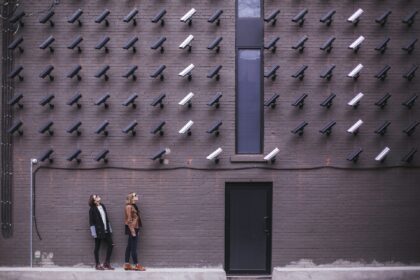
Article by Lesai Seema, Candidate Attorney, checked and released by Chantelle Gladwin-Wood, Partner
8 August 2022
INTRODUCTION
In the speaking notes delivered by Police Minister General Bheki Cele at the occasion of the release of the Quarter Four Crime Statistics 2021/2022 hosted in Pretoria on Friday 3 June 2022, the minister noted another increase in all property related crimes. It is therefore not a happy accident that video surveillance or close circuit television (“CCTV”) and dash cameras (“Dashcams”) have moved up on the priority list of property and vehicle owners. Whether you want to monitor your points of entry, deter ominous characters or simply to ensure your safety and that of those who occupy your premises/vehicle, video surveillance goes a long way towards helping to protect against crime.
Could it be, however, that in exercising your right to security, you are infringing on another individual’s right to privacy when videoing them? This article considers the use of video surveillance for security purposes, and the legality of same.
GOVERNING LAW
There is currently no law that expressly regulates the use of CCTV cameras and the footage thereon. The main prevailing governing pieces of legislation that indirectly govern video surveillance are: The Constitution of the Republic of South Africa, 1996 (“the Constitution”), Regulation of Interception of Communications and Provision of Communication-Related Information Act of 2002 (“RICA”) the Protection of Personal Information Act 4 of 2013 (“POPI”), which was enacted to give effect to the constitutional right of privacy contemplated in section 14 of the Constitution, and the Promotion of Access to Information Act 2 of 2000 (“PAIA”), which gives effect to the right to access to information contemplated in section 32 of the Constitution.
FREE STANDING HOMES & SECTIONAL TITLE SCHEMES
The test here for lawfulness of the use of surveillance footage for security purposes is whether persons making use of the area under surveillance have a ‘reasonable expectation of privacy’ and whether the camera serves a legitimate purpose.
It follows that, free standing homeowners are allowed to put up CCTV cameras without having to request permission from anyone. You may monitor, inter alia, areas such as entry points and boundary walls, in other words, record people coming and going, if you have reasonable camera placement. However, you may be at risk of violating another’s right to privacy where the surveillance extends further than your property or if you are monitoring any person’s activities in a situation where their activities cannot pose you any risk or harm (such as where a person is using the loo).
Persons who reside in sectional title schemes may additionally need to get permission before setting up CCTV cameras in terms of the Sectional Titles Schemes Management Act of 2011, as they will likely record footage beyond your property thus interfering with other owners’/visitor’s privacy rights. These cameras might also be installed on common property, which is owned and governed by the body corporate, and which would require permission for installation.
It is advisable for body corporates (or any other property owner or manager) looking to introduce clauses into any agreement or rule relating to the installation of video cameras for security surveillance introduce a written policy which will address, inter alia:
- The use and purpose of CCTV and the definition of same;
- the areas under surveillance;
- how information stored is to be processed, and its lawful uses; and
- how a person who wants access to the video footage can request access to the footage (In compliance with POPI) in circumstances where an owner or tenant (or any other person) requires the footage in order to enforce his/her rights.
DASHCAMS
A dashcam is a video surveillance camera mounted on the windscreen of a car for the purposes of recording traffic and incidents that may occur while driving.
Dashcams are largely used as a deterrent and in the unfortunate event that you are in a car accident, it can be used to as evidence and it can be used in support of your insurance claim amongst other things. You do not require any prior authorisation use a dashcam however, in protecting your interests you might be collecting other people’s data that may be private without their express consent. For example, this might occur where your dashcam records sound and there are passengers in your car having a conversation. The reasonable expectation is that you let your passengers know that they are being recorded, in order that they may make informed decisions but in terms of Section 4 of RICA you are entitled to record any conversation that you are part of it without disclosing it. This position was confirmed by the court in S v Kidson 1999 (1) SACR 338 (W). What about the Uber driver eavesdropping on your conversation with your friends?
STORAGE AND PROCESSING OF INFORMATION COLLECTED
What are your responsibilities in respect of all the data collected? It is our view that in those circumstances, there exists a positive duty on you to ensure that that data stored in a safe manner and is not shared or easily accessible to third parties, where that data constitutes personal or identifying data.
NATIONAL ROAD TRAFFIC ACT 93 OF 1996
The National Road Traffic Act 93 of 1996 is silent on whether drivers are required to have a clear view through their windshield. This means that drivers can set up their dashcams behind the rear-view mirror or elsewhere on the windshield as opposed to other countries which require drivers to have a clear windshield and set up the dashcam on the dashboard.
CONCLUSION
With the increased use of video surveillance, the legislature will need to regulate their use in order to provide legal certainty. This will go a long way in enabling people to enforce their rights where their right to privacy has been infringed upon. This is particularly relevant in regulating video surveillance in the workplace, gyms, health clinics amongst other places.
Will the same rules apply in video surveillance used to monitor minors, disabled persons, or persons who have a high public profile and do not want their whereabouts to be recorded? The answers are not as straightforward as they seem. When in doubt, consult an attorney who specialises in sectional title schemes and/or security and/or privacy rights.
VALUE
Understanding the use of video surveillance and the rights that stand to be violated with reckless use.



